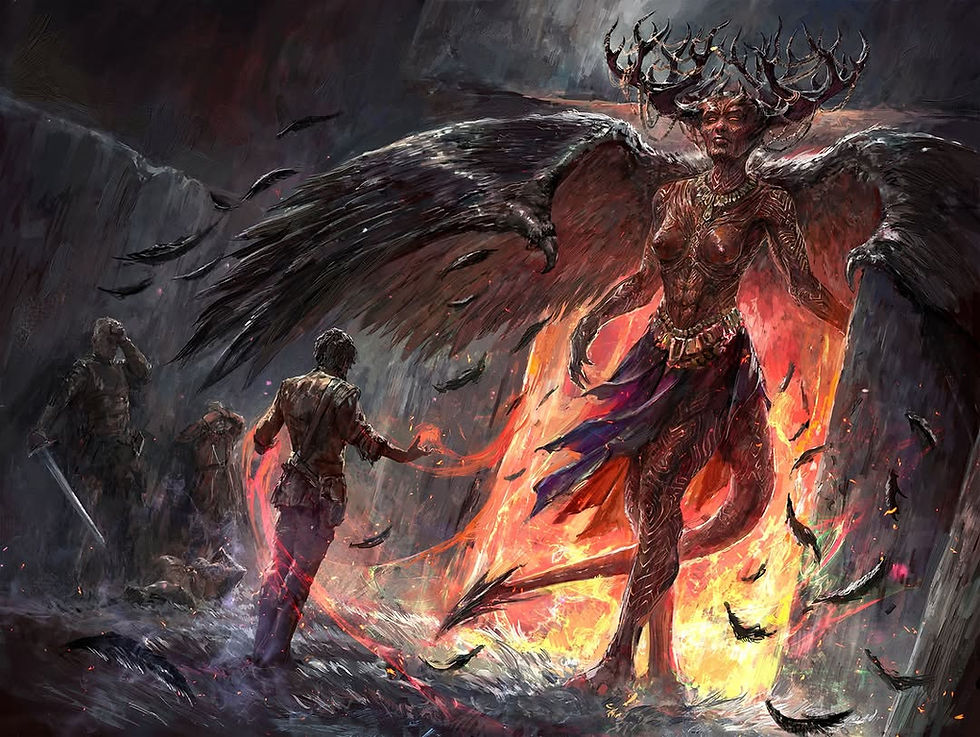Learn it, Live it, Teach it
- zachlaengert
- Nov 22, 2023
- 3 min read
Updated: Dec 25, 2023
Published by Zach Laengert on October 5, 2023.
How would you be different if you'd seen proper representation all your life? To have prominent and diverse examples of race, gender, queerness, disability, neurodivergence, and anything else visible in the media you consume and amongst the people who made it. In that world I probably began working on my anxiety and ADHD in middle school, rather than halfway through my seven-year Bachelor’s. I’d have explored my gender identity early, and found acceptance for myself rather than languishing behind the bars of perceived masculinity. Take it a step further and imagine a society where we consistently learn about colonialism, discrimination and erasure of culture. How much can we change just by telling and consuming better stories?

I firmly believe that stories are the closest we can come to experience another person’s life. Opening their eyes, feeling the unique tension of their body, hearing their alien yet familiar inner monologue. Stories are where we can try on different modes of thinking, imagine ourselves in novel situations, and decide the characters we’d like to emulate and those whose entrance to a room would have us careening toward an exit.
I spent the first two decades of my life reading characters and authors who carried the perspective of white, cisgender, heterosexual men and occasionally women. In cases like Harry Potter, diversity and progress were not only lacking but actively avoided and discouraged.
Ann Leckie’s Ancillary Justice should have changed my life, when I read it for my Science Fiction Literature class at the University of Toronto in 2015. The novel explores a society in which everybody is referred to by she/her pronouns, fully eliminating societal expectations of gender and sexual orientation as a mere backdrop to Leckie’s tale about intrigue and colonialism. Our instructor presented this as an interesting literary choice and, it being years before I would begin to grasp these issues and their importance to me, I took it as such.
I wish I knew whether more socially conscious classmates brought up those issues back then. In that other world, those might have been incredible friends to me during my time at university.
A trans author I utterly admire is Yoon Ha Lee. His Machineries of Empire trilogy is a masterpiece of exploring queerness through and alongside intense internal, societal, and violent conflicts. I can identify with Kel Brezan – a trans man struggling to prove he can obey, fight and die as well as his comrades – more easily than any traditionally masculine character I can think of. Kel Cheris having her mind partially subsumed by Shuos Jedao and the centuries of trauma he has experienced transforms them into a fascinating character who exploits perceptions of their identity to survive and succeed.

Kel Cheris from Lee's Machineries of Empire
Yoon Ha Lee also wrote Phoenix Extravagant, which depicts a non-binary main character living and working under a foreign occupation which doesn’t recognize their gender. Their job is to destroy their own cultural art and history as part of producing the magical paint by which the foreign nation conquers. The more significant the cultural work destroyed, the stronger the weapon they hand to their oppressors.
The Masquerade series by Seth Dickinson holds a place very close to my heart. It features an indigenous lesbian who has dedicated her life to destroying from within the capitalist, colonialist society that obliterated her people’s way of life. Baru commits atrocities, betrayals and brutal sacrifices in pursuit of this goal. The series truly hooked me when I realized that she is not alone, and further that their attempts to steer the machine into collapse are exactly what empower it and keep it moving. Well, that and the absolutely stunning worldbuilding and pseudo-scientific advances Dickinson has dreamed up.
Stories like these not only serve to normalize diversity of representation, but also to convey critical ideas and lessons from history. I was 23 when I first saw someone whose gender expression I could identify with. Only even more recently am I hearing people talk about ADHD and neurodivergence openly and in a way that promotes education.
If Harry Potter or any average YA series featured a quarter of the representation of the books I discussed in this blog, I believe the world would be a markedly better place. All it takes is consuming more diverse media and bringing those lessons to our own work – so let’s start here and now.







Comments